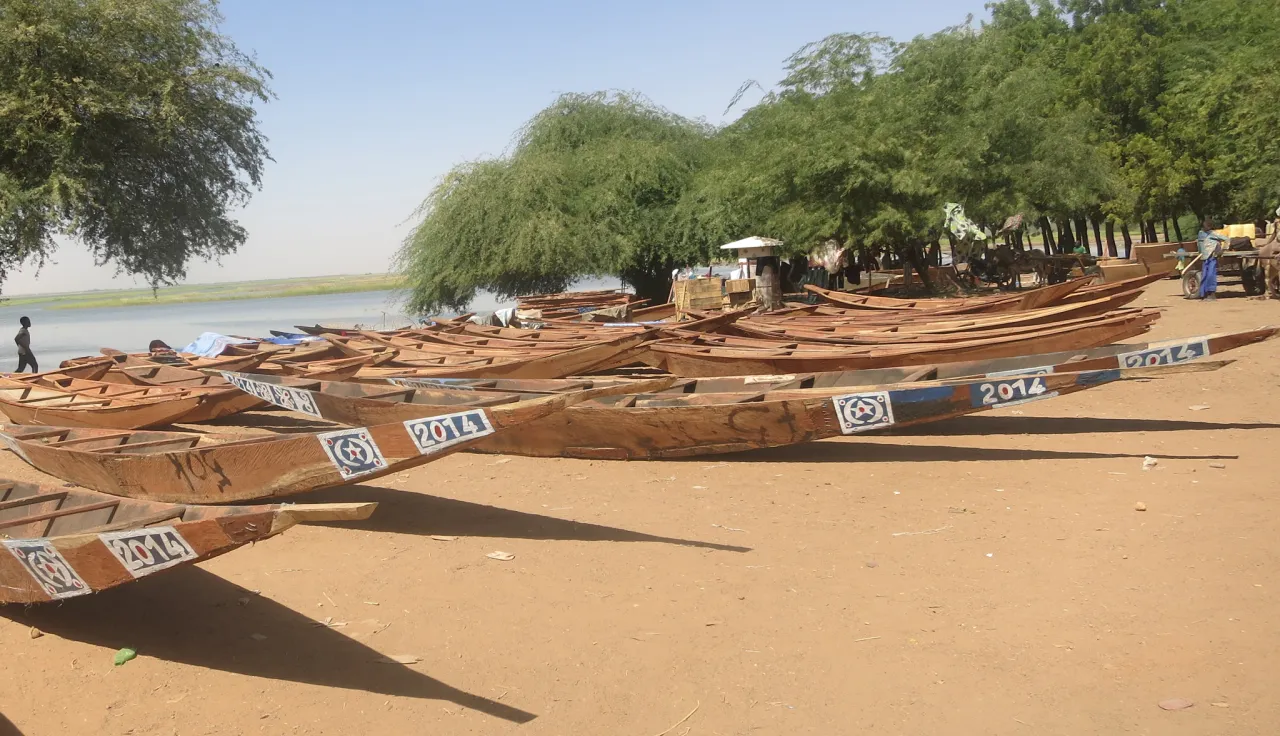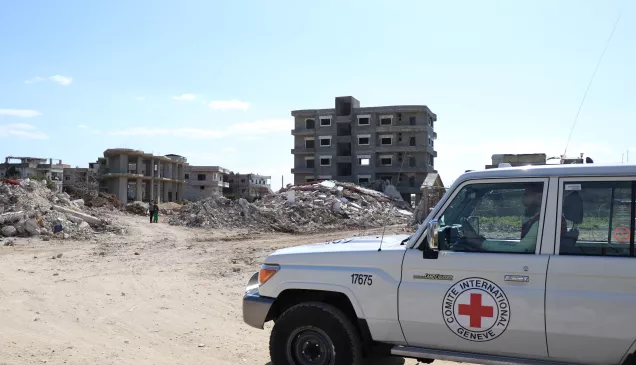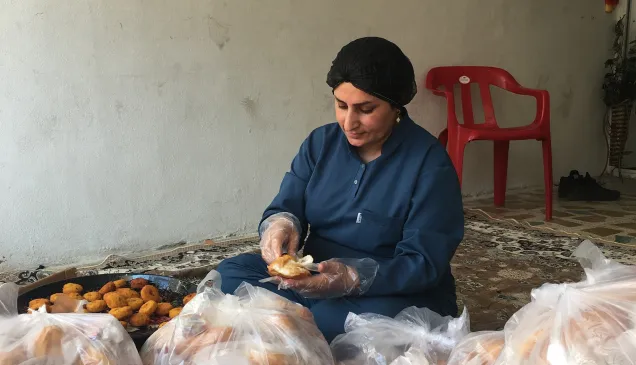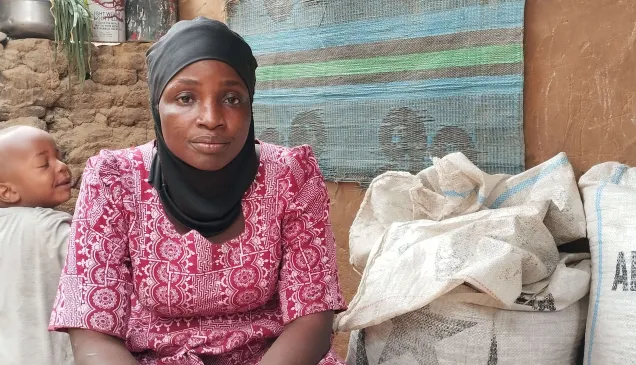Mali: Ansongo's fishermen prepare to net a better living

Several reports have highlighted the effects of Mali's conflict on farming and commerce, but little has been done to help the fisheries sector, which is the main source of income for people living along the River Niger. The conflict destroyed many families' boats and equipment, leaving them with no income. So the ICRC has distributed boats, hooks and nets to 86 families in Ansongo, and will be providing training so they can be even more productive than before the conflict.
Ansongo means "fish capital" and catching fish has been the big thing in Ansongo for longer than anyone can remember.
But fishing has been going through rough times on this part of the Niger. Equipment shortages, difficulties with fish processing and a credit squeeze were all depriving people of their only income. Many fishermen (the word is used for both sexes) were unable to replace boats or equipment destroyed by fighting. Their incomes dropped dramatically, to zero in some cases, leaving them unable to support their families.

Ansongo, northern Mali, 29 December 2014. ICRC personnel prepare sets of hooks for collection by fishing families. Each set contains a selection of different types of hook. CC BY-NC-ND / ICRC / A. Kane
"I'm a single mother, and I couldn't feed my family properly, or send my children to school, or pay for medical treatment," explains Agaichatou Moussa.

Ansongo, northern Mali, 29 December 2014. The prefect of Ansongo takes part in the distribution of boats, nets and hooks. CC BY-NC-ND / ICRC / A. Kane
Despite the dire situation of the fishing sector, most humanitarian agencies were focusing their support on agriculture and livestock operations. The majority of Ansongo's fishermen have become dependent on aid, or the money they can make out of small-scale market gardening or selling a little tea and sugar. Over 70% of fisherman had lost their boats and equipment. With no support from outside, some of them had to leave fishing altogether.

Ansongo, northern Mali, 29 December 2014. A fisherman loads his nets and hooks onto the boat he has received from the ICRC. CC BY-NC-ND / ICRC / A. Kane
This all started to change when the local fishing association contacted the ICRC. On 29 December 2014, following a thorough assessment of the situation, we distributed fishing boats and equipment to 86 families in Ansongo. In total, we provided 48 boats, 430 packs of hooks, and a range of different nets.
"These boats and equipment will help families get back into fishing and start earning the money they need in order to survive," explained Jean-Pierre Nereyabagabo, who runs the ICRC's economic security programme. "Everything we're providing is of good quality, so we hope that eventually each family will able to increase their daily production from 250 grammes to 7 kilos. Currently, the average fishing family is only making 500 CFA francs (0.80 Swiss francs/$0.83) per day. If production increases as we expect, these families will have an average daily income of 15,000 CFA francs (24 Swiss francs/$25)."

Ansongo, northern Mali, 29 December 2014. Fishermen collect nets and hooks. CC BY-NC-ND / ICRC / A. Kane
The ICRC plans to train the families in fish preservation, marketing and environment-friendly fishing techniques.
The total cost of the project is estimated at 20,000,000 CFA francs (32,000 Swiss francs/$33,000), with an average estimated gross margin per beneficiary of 189,000 CFA francs per month (301 Swiss francs/$313).



